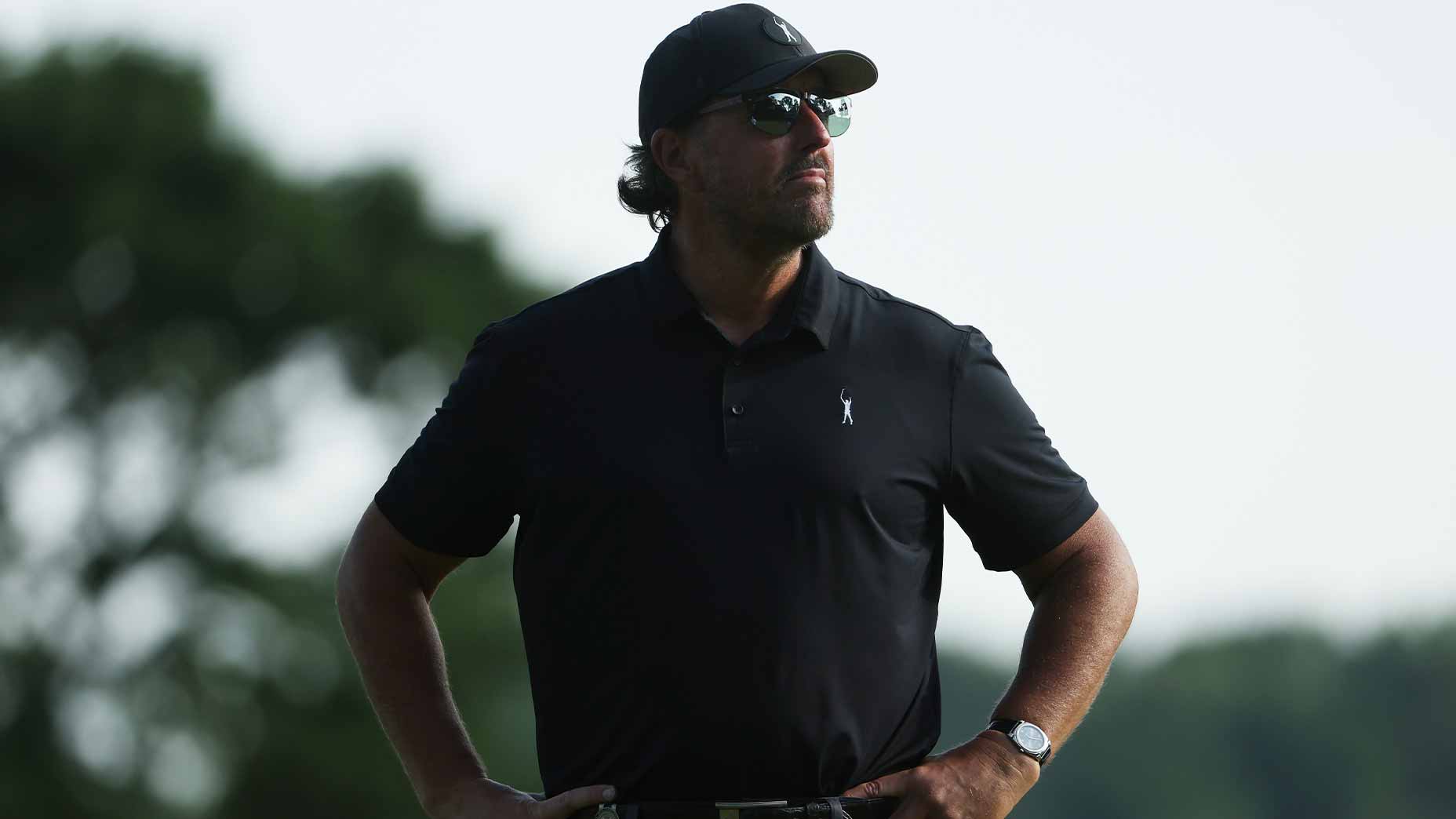BROOKLINE, Mass. — How did you celebrate Phil Mickelson’s 52nd birthday?
Were you one of the supporters? The crowds that followed Mickelson at the U.S. Open on Thursday were noticeably large — the largest of the day, by the estimation of a handful of marshals. They were also a source of great intrigue for the golf community, though they never should have been.
The crowds are drawn to Phil. Always have been, always will be. At The Country Club, they treated him like a man who’s been the lifeblood of his sport for the past quarter-century — and to this end, they were justified. Mickelson is the lifeblood of golf. Or he was. Nostalgia is a powerful opiate.
“People were great,” he said from the parking lot after his round. “Yeah, loved it. [The] people here in Boston have always created a great environment for sporting events, and they’ve been amazing for golf tournaments. Today was no different.”
The fans greeted Mickelson rabidly on the first tee box, summoning the kind of ovation one often hears only for Tiger Woods — in which sound begins long before he shows up, and washes over the place well after he leaves. They screamed about his beard, they screamed about his calves, they screamed about his birthday.
They screamed and screamed and screamed, until the final putt on an 8-over-78 round dropped, and they could scream no longer.
Were you one of the dissenters? There were a few of you here.
The critics were mostly quiet when the round started, letting their silence speak for them. But before long, they were screaming at Phil, too, though their words were not kind.
“Blood money, Phil!” Yelled one of you. “You’re taking blood money!”
“You’re terrible, Phil!” Yelled another. “Terrible!”
Things grew worse as the round wore on. On the 13th tee box, there had been four negative comments in Mickelson’s direction. But by the 15th, that number had grown to at least six.
There were three uniformed police officers assigned to Mickelson’s group on Thursday afternoon, triple the number assigned to Rory McIlroy’s morning group. That was a reflection of the noise around Phil Mickelson, even if the overwhelming majority of it was positive.
“I thought this was going to be the easiest stretch on the course,” one officer said. “So far, it’s been the worst.”
He was not talking about the golf.
Mickelson himself didn’t seem to do a very good job of staying away from the birthday madness on Thursday. His golf game was disjointed. His putting grip was unusual. He made ugly bogeys. He four-putted. He played it too safe.
More than any one swing, though, Mickelson looked … hollow. His gestures felt empty — smiles and thumbs-up that, for the first time in his life, looked forced and inauthentic. His swing lacked gusto. It was his regular old move, but it was missing something — the juice, the creativity, the flair for the dramatic. Most moments in between the empty smiles and lifeless swings were filled with something worse: sullen, million-mile stares.
On his 52nd birthday, Phil was the one thing he has so determinedly avoided throughout his career: soulless.
And so we felt soulless, too. The rest of us, that is. The people who felt sadness, not excitement or contempt, watching Phil on Thursday.
The people who wondered the last time a six-time major champion began a national championship under this much derision. The people who heard screams of “LIV and let live!” and wondered when, exactly, the grandstands became a place for grandstanding. The people who had the audacity to remember that Mickelson stood on the precipice of something his own newly bloated bank account could not fathom: a U.S. Open, the grand slam.
Things are the same as they always were with Phil. There are still smiles and waves, cheers from fawning galleries, a spectacle. But things are so clearly different. Phil isn’t Phil anymore. He’s a talking point, a side of an argument, a representation of all the things right or wrong with the world.
Phil Mickelson celebrated another birthday on Thursday at the U.S. Open. If only his age were the biggest change.
